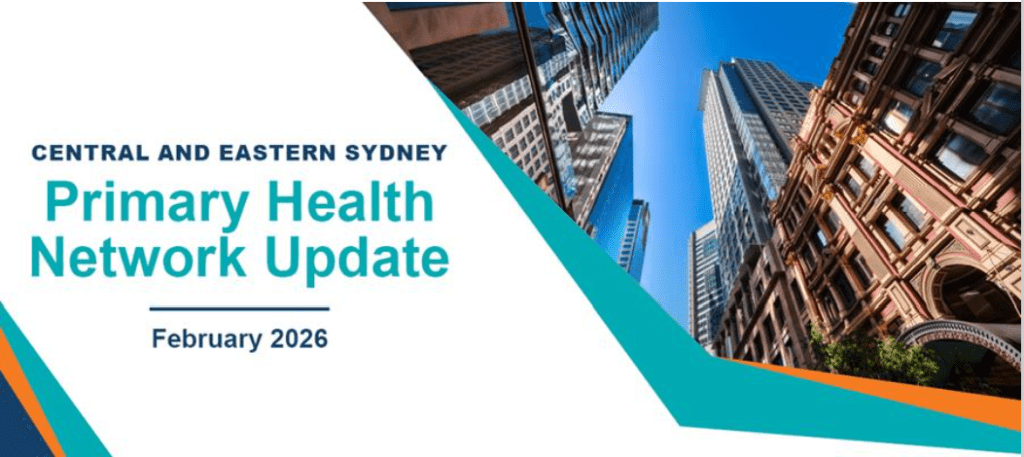
The SLHD GP Shared Care Clinical Midwife Consultant, Melanie Tulloch, will be away on maternity leave until April 2026. Her role is being covered by Nicola Hart, Monday-Friday 8:30-4:30pm. Please continue to call the GP Liaison phone on 0425 230 662 during business hours. Alternatively, you can page the O&G registrar on-call through the hospital switchboard for urgent or after-hours advice.
Did you know the SLHD Parent Education Service provides face to face and online information sessions for expecting families? Our Early Pregnancy Information Session is perfect for families planning a pregnancy or from 4 weeks of pregnancy. We discuss preconception health and ways parents can plan for a healthy pregnancy. We provide pregnancy, birth and parenting resources and information about Sydney Local Health Districts Maternity, Child and Family Health services. This session is free, please go to SLHD Parent Education Booking Form
Once completed, the RPA Hospital Redevelopment will provide spacious new facilities for our ante and postnatal in-patient units.
Unfortunately, construction has impacted on the amenity of our current location. Our postnatal ward 5 East 2 has temporarily relocated to a ward on another floor of the hospital, 10 West 2 as of the 1st September. Access is via the lifts on ground floor (level 5), near the florist.
Babies will continue to remain at their mother’s bedside, unless they need to be admitted into the Neonatal Special Care Nursery.
The obstetric team, postnatal midwives, physiotherapists and lactation consultants will continue to provide the same excellent care on 10W2.
Healthlink Smartform eReferrals are the primary mechanism for referral for RPA Women and Babies Services. We are encouraging GPs to submit eReferrals as early as possible, ideally from 6-8 weeks gestation. eReferrals can be submitted at the first GP antenatal appointment. The eReferral can be updated after with results such as routine antenatal screening bloods and ultrasound reports once they are available, via your practice software. Submitting the eReferral early allows for the hospital to arrange the first midwife booking appointment promptly and ensures patients have timely access to combined first trimester screening at 11-13+6 weeks, available to all women birthing at RPA hospital.
Please remember to include all the relevant medical and obstetric history available when completing the eReferral. This includes reporting the last cervical screening test date and the result of this in the eReferral.
For more information on how to submit and update eReferrals, please refer to the HealthLink Smartform user guides.
If you require any support with eReferrals to SLHD, please contact the eReferral Project Team – SLHD-EReferralProject@health.nsw.gov.au or 0476 768 628.
The Therapeutic Goods Administration (TGA) are urging health professionals to caution expectant parents about the risks associated with at-home foetal heart monitors and baby movement apps. The TGA have received recent reports of these devices providing false reassurance to expectant parents, when used without specialised training which has led to delayed medical attention and adverse outcomes. Following a post-market review in 2024, the TGA are no longer approving the supply of home-use foetal heart monitors in Australia. However, illegal sales of new and second-hand devices continue online. The TGA are advising health professionals and consumers to report any problems with the devices . Additionally, health professionals are advised to reinforce the messaging to expectant parents around decreased foetal movements and reinforce the importance of early contact with their midwife, doctor or maternity facility, if there are any concerns about their baby’s wellbeing. For more information please visit the TGA website.
You may be aware that the Australasian Diabetes in Pregnancy Society (ADIPS) have recently published their 2025 Consensus Recommendations outlining the changes to the diagnosis of gestational diabetes mellitus (GDM). The key changes in the updated recommendations include raised diagnostic glucose thresholds for GDM, as well as clear guidance for early pregnancy screening for women with risk factors for hyperglycaemia in pregnancy.
As of Monday the 8th September, the SLHD has adopted the new diagnostic thresholds for GDM following a 75g two-hour pregnancy oral glucose tolerance test (POGTT).
Health professionals are encouraged to read the full consensus recommendations published in the Medical Journal of Australia. Please refer to ADIPS prepared responses to frequently asked questions for health professionals.
Lara is a 28-year-old PE teacher in her first pregnancy. Lara has had routine antenatal bloods which are all normal, however Lara’s combined first trimester screening shows high risk for pre-eclampsia before 37 weeks. Lara was told to see her shared care GP to follow-up the result ASAP. Read the full case study here to find out what happens next.
The antenatal period is the best time to prepare families for the challenges of early parenting, including infant feeding. A structured, evidence-based approach to infant feeding can empower parents, reduce anxiety, and build confidence before the emotional and physical demands of the postnatal period begin.
The benefits of breastmilk are well established. Yet, in Australia, 96% of mothers and parents initiate breastfeeding – yet by five months, fewer than 16% are still exclusively breastfeeding. They are not stopping out of choice; but due to pain, confusion, or a lack of support.
As antenatal care providers, we’re in a unique position to build knowledge, confidence, and realistic expectations. Early support can prevent many of the feeding challenges that lead to distress after birth. including mental health challenges.
Click here to learn more.